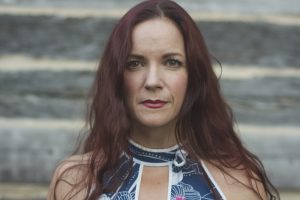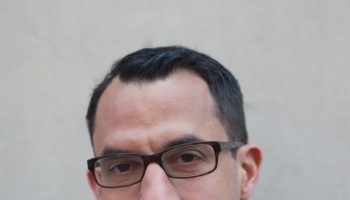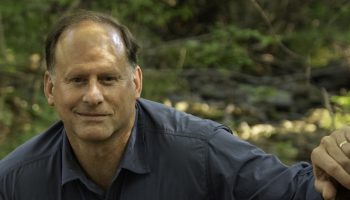Without stops, it is nearly a 14 hour drive from Oxford, Mississippi to Chautauqua, New York.

This is the drive Mississippi’s poet laureate Beth Ann Fennelly drove with her husband and three kids to arrive at Chautauqua Institution. Her first visit to the grounds was last summer, when she came for the annual Chautauqua Writers’ Festival prior to the season’s start.
I was thoroughly smitten with Chautauqua, every aspect of it,” she said. “And I just had this fantasy, ‘Oh, I wish I could share this with my family.’ ”
Fennelly returns this season, now in full swing, with her family in tow.
She is the Chautauqua Writers’ Center’s Week Five poet-in-residence and will deliver her Brown Bag lecture at 12:15 p.m. Tuesday, July 24, on the front porch of the Literary Arts Center at Alumni Hall.
Her talk is titled, “The Prodigal Sonnets: A close reading of Elizabeth Bishop.” She hopes to look at one work “very narrowly, but very deeply.”
“We’re going to spend most of the time with a poem that probably no one will have read,” Fennelly said. “So we’ll all be coming to it freshly.”
The poem in question is a double sonnet by Bishop called “The Prodigal.” No familiarity with the text is necessary; Fennelly will recite the poem and provide a printed copy.
“We’re going to look very closely (at) what she brought to the poem and how it’s an example of what makes her a great artist,” she said. “And also how it’s an example of something we can all do, which is locate our human story in someone else’s humanity.”
In Bishop’s case, she writes as an American female poet. She uses her voice to tell a story about the Prodigal Son from the Bible, but through the lens of her “own experiences in a way that illuminates the prodigal.”
Fennelly chose Bishop’s poem for myriad reasons.
“Bishop is one of my favorite poets and one of the most important poets of the last century,” she said. “But in addition, this poem has so many different types of skill, and it’s a story that is familiar to people.”
Although the Bible story is well-known, Fennelly said Bishop’s take on it is “so original and so illuminating,” and that there is much to discuss on a craft-level.
Fennelly hopes listeners come away with a greater appreciation for Bishop’s work, especially if they didn’t already know her, and that people new to the study of the craft enjoy the double sonnet form as “an interesting vessel” they may apply to their own work.
And, Fennelly said, poetry is “just a beautiful expression of a part of human nature.”
“I hope that people just enjoy listening to a great poem,” she said, “and understanding why it’s great and what that can give them on a somatic, cellular level — just the beauty and the things that humans can accomplish when they’re working at the height of their powers, and they’re bringing all their life experiences and all their skill to look at something and capture it so fully.”



